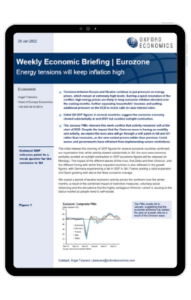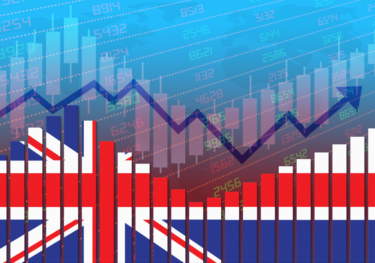Energy tensions in the eurozone will keep inflation high

Tensions between Russia and Ukraine continue to put pressure on energy
prices, which remain at extremely high levels. Barring a quick resolution of the conflict, high energy prices are likely to keep eurozone inflation elevated over the coming months, further squeezing households’ incomes and putting
additional pressure on the ECB to resist calls to raise interest rates.
What you will learn:
- Initial Q4 GDP figures in several countries suggest the eurozone economy slowed substantially at end-2021 but avoided outright contraction.
- The January PMIs released this week confirm that activity remained soft at the start of 2022.
- Despite the impact that the Omicron wave is having on mobility and activity, we expect the euro area will go through a soft patch in Q4 and Q1 rather than recession, as the new variant proves milder than previous Covid waves and governments have refrained from implementing severe restrictions.
Tags:
Related research

Post
UK : The everyday economy matters to local economic performance
The everyday economy generates half of all UK employment and 33% of GVA but is often dismissed because it generates less growth than high value services and has low productivity. But indirectly it has the capacity to improve the competitiveness and performance of local economies and has been identified by Labour Party leaders as a sector to focus on, if they win the election.
Find Out More
Post
Amid disruption, what can US office learn from retail?
We examined the disruption of generative AI at the US county level. We identified several metros – Atlanta, Denver, New York, San Francisco, and Washington DC – that had at least one county with the highest percent of displaced workers from AI.
Find Out More